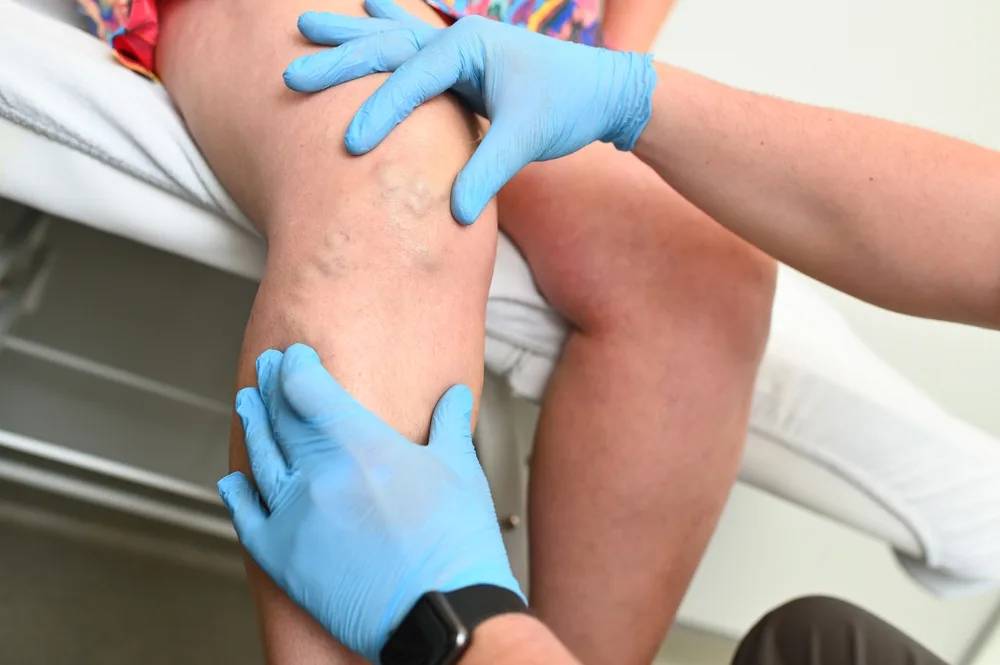What Is a Phlebologist? Understanding the Specialists in Vein Health
- 26 August 2025

What Is Phlebology?
Phlebology is the medical specialty focused on the diagnosis and treatment of venous disorders. These can include everything from common varicose veins to more serious conditions like deep vein thrombosis (DVT), vascular birthmarks, leg ulcers and clotting disorders.
Phlebologists are qualified medical doctors who have completed further training in venous disease. They’re experts in both identifying and treating these conditions, often using advanced technologies such as vascular ultrasound and minimally invasive procedures.
While phlebology has been an established field in Europe for more than 50 years, it has seen significant growth in Australia and New Zealand over the past two decades, largely due to increasing awareness and the availability of non-surgical treatment options.
Why See a Phlebologist?
-
Heaviness or aching in the legs
-
Burning, stinging or throbbing sensations
-
Swelling, cramping or restlessness
-
Skin rash or discoloration around the ankles
-
Small blue or spider veins
How to Prevent DVT While Traveling
You can take simple steps to reduce your risk of developing DVT during travel:
- Move Your Legs and Feet: Raise your heels with your toes on the floor and get up to move around every hour.
- Stay Hydrated: Drink plenty of water, but avoid alcohol and caffeine.
- Wear Loose Clothing: Tight clothing can restrict blood flow.
- Avoid Sleeping Pills: These can keep you immobile for long periods.
- For Drivers: If you are driving, stop every hour and walk for a few minutes.
Phlebologists also manage serious venous conditions like DVT, where blood clots form in the deep veins. If a clot travels to the lungs, it can cause a pulmonary embolism, a life-threatening condition. These clots may form after long-distance travel, surgery, or as a result of inherited clotting disorders or underlying health conditions like cancer.
What Does a Phlebologist Do?
Phlebologists are highly skilled in the use of vascular ultrasound, which plays a central role in both diagnosis and treatment. Most modern vein treatments are performed under ultrasound guidance.
Some of the procedures a phlebologist may offer include:
Ultrasound-Guided Sclerotherapy (UGS)
Developed in 1989, UGS is a non-surgical treatment for varicose veins. The introduction of foam sclerotherapy in the early 2000s has made this approach even more effective.
Endovenous Laser Ablation (EVLA)
A newer treatment for major veins, EVLA is minimally invasive and performed under local anaesthetic. It’s become popular due to its simplicity and fast recovery time.
Microsclerotherapy and Laser Therapy
How Do You Become a Phlebologist?
To become a phlebologist, a doctor must first complete at least six years of medical school, followed by hospital-based clinical training. Additional specialist training is available through the Australasian College of Phlebology (ACP) for those who wish to specialise in the field.
The pathway involves three stages:
- Basic Training (1 year)
Graduates who meet the training and examination requirements become Certified Sclerotherapists and are qualified to perform microsclerotherapy. - Advanced Training (2 years)
Covers more complex treatments such as Ultrasound-Guided Sclerotherapy and EVLA, along with theoretical learning and supervised clinical work. - Fellowship (1 year) After completing Advanced Training, candidates undertake further clinical experience and assessment to qualify for Fellowship of the College.
Upon successful completion, doctors are awarded the title Fellow of the Australasian College of Phlebology (F.A.C.P.) — the recognised credential for phlebology specialists in New Zealand and Australia.
If you are worried about your varicose veins and risk of developing a thrombosis please contact Vein & Laser for an assessment.
Vein & Laser





